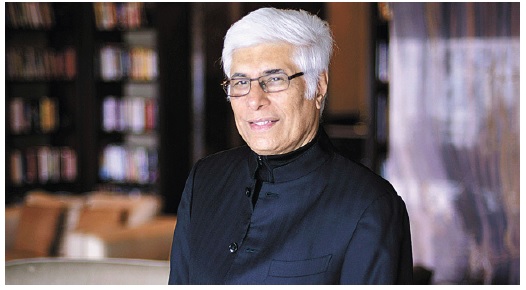We turn 25!!!
Posted by By nishithadmin at 10 February, at 01 : 08 AM Print

Let’s Change the World – together
Quarter of a century ago on February 10, 1990, we embarked on a journey to build a law firm. We were determined to change the world around us and wanted to create something “Distinctly Different”. And so with our six hundred and thirty square feet office space in Mumbai we set out. Fast forward today we are present in 3 continents, servicing our global clientele.
We started the firm based on research, academics, thought leadership and innovation, a first of its kind in the world. In the year 2014 Financial Times recognized us as the Most innovative Indian Law firm and 2nd Most Innovative Asian Law firm.
We built our firm along the Gandhian principles of trusteeship. We are now a case study for several management schools and many professional firms globally. Wiley published a story about our philosophy in their renowned journal of organizational excellence titled ‘ Management by Trust: A Law firm Shapes Organizational Behavior as Competitive Advantage.
All professionals must aspire to be trusted advisors to their clients. We believe that ‘ client interest ‘ is paramount, and we remain committed to being their trusted advisors. To us, being a ‘ trusted advisor’ means putting client interest above ours, but without losing our independence and professional integrity. In our Balanced Scorecard metric, we find that over 84% of our end users are repeat clients. RSG, a UK based leading consulting firm, has consistently ranked us amongst the highest in their independent ‘ Client Satisfaction Survey ‘.
Inspired by the Bhutanese theme of using a GNH (gross national happiness) as an indicator of the quality of life, we strongly believe in the ‘ Happiness Quotient ‘. Every decision and action at our firm is driven and measured by the overall vivacity of our firm. Therefore, we choose to work with select clients in select verticals as experts or specialists particularly in the areas of international tax, corporate, intellectual property and cross-border dispute resolution. Our limit to growth is where our exuberance ends.
Today, we renew our commitment to the joy of changing the world – for the better. We hope to share with you our new ideas (including the crazy ones) as we go along. If you enjoy them, share your thoughts with us.
As a starting point, we would like to present an idea of ours published in the Business World a few weeks ago titled the ‘ Disappearance of Nation State: Circa 2050 ‘. Basically, the essence of the article is that with the advent of technology the notion and concept of a nation state would become outdated and redundant in the next 30 years or so.
Technology is a great dis-intermediator and it would eliminate the need for a parliament and the parliamentarians (the so called ‘agents’ aka ‘ ‘intermediators’ who claim to represent the people – really?). That time isn’t too far. Electronic voting* as suggested by the Government* with the help of data analytics and Wikipedia like instruments will facilitate the movement towards a process that results in an e-Parliament and e-legislations.
Through the course of the year, we will run a series of future-gazing pieces on an array of topics that seek to bring developmental or disruptive positive change. Let’s do some moonshot thinking* and visualize a world beyond our imagination…..
Thank you for being a part of our wonderful journey.
Warmly
Nishith Desai
Disappearance of Nation State: Circa 2050
WITH THE INTERNET, THE CLOUD, INTERNET OF EVERYTHING AND OTHER TECHNOLOGIES, THE ENTIRE WAY A NETWORKED WORLD (OF PEOPLE) THINKS, CONNECTS, AND CONTRIBUTES HAS SEEN REVOLUTIONARY CHANGE. BUT EQUALLY SIGNIFICANT AND FUNDAMENTAL MAY BE THE TRANSFORMATION IN THE PROCESS OF LAW-MAKING IN THE FUTURE, USHERED IN BY A NETOCRATIC ORDER.

Netocracy shall be the new, more evolved form of Democracy. The Internet and other technologies have the ability to fundamentally disrupt our understanding of the functions of nation states, law and order, governance, and political mechanisms of the future.
Democracy began to be observed in circa 508 BC in Athens, regarded as the birthplace of modern democracy. Within the Athenian liberal society, philosophers gathered to develop their theories of democracy. Socrates was amongst the first to raise the question, “what is the relationship or position of an individual within a larger community?” Further expounded by his pupil Plato. But it was Plato’s pupil Aristotle, who laid the foundations of ‘political philosophy’.
Interestingly, the first parliament in the world was created in the year 930 AD in Iceland as a proper legislative body. It thus took over 1500 years from the birth of modern democracy to have an institution called ‘Parliament’. Previous versions of democracy that functioned in smaller city states did not require a formal representative structure, and it has been one of the biggest criticisms of the application of democracy to large and plural countries like India, that the representative structure distances the electorate from the government.
Now, after almost 1100 years and the advent of the Internet, the time has come to reinvent ‘democracy’ and relook at the way institutions such as the Parliament function. Do we really need the Parliament or Parliamentarians? Members of Parliament are agents of the people. In this age of technology driven disintermediation, why can’t they be dis-intermediated — just as Amazon came and made Barnes and Nobles disappear?
With the Internet, the cloud and other technologies, the entire way people think, connect, communicate, express and execute has fundamentally transformed. We are in an age of co-creation. People no longer want to outsource legislative functions to members of Parliament. They want to actively participate, co- create and even initiate policy and legislation.
Wikipedia is one of the best examples of credible and reliable co-creation, effectively undoing conventional dictionaries and encyclopedias. Anyone with Web access can edit Wikipedia pages, and this openness encourages inclusion of massive content. About 77,000 editors — from experts to casual readers — regularly edit Wikipedia, and these editors ensure a consistent style throughout the encyclopedia, following the Wikipedia Manual Style.
Looking ahead, even drafting of legislation could happen in a fully-networked community. It’s likely that co-created legislation would be better crafted by enhanced participation of stakeholders.
This would make referendums easier. Combined with co-created policies and legislations, it would be quick and easy to bring in, change or repeal laws without the inter-mediation of the legislature. It will increase accountability on the part of political and government institutions. Parliamentarians should become thought leaders and opinion makers, not agents to pass the laws as they like.
Law should not be an impediment, but an enabler. Perhaps it is time to discuss how we can have efficient, real-time legislative processes to keep pace with the fast changing world and its aspirations.
The author is founder of the law firm Nishith Desai Associates
(This story was published in BW | Businessworld Issue Dated 15-12-2014)






